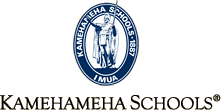General Session 1
Tuesday 9:30
Learning in a Networked World: For Ourselves and for Our Students
Will Richardson
If we have access and the skills to take advantage of it, the Web gives us an easy connection to the people and the resources that we need to learn whatever we want to learn, when we want to learn it. That fact challenges the fundamental beliefs that we’ve held about schools and teaching and learning for over 100 years. As our students graduate into a fast-changing, globally networked world, what assumptions do we need to reconsider about how to best prepare them for their futures? How can each one of us begin to change our own learning practice to better model these new opportunities for our students? And what new challenges do we have to overcome to make sure the idea of school remains relevant in the networked world in which our students will live.
General Session 2
Wednesday 8:00
The End of Wonder in the Age of Whatever
Dr. Michael Wesch
New media and technology present us with an overwhelming bounty of tools for connection, creativity, collaboration, and knowledge creation – a true “Age of Whatever” where anything seems possible. But any enthusiasm about these remarkable possibilities is immediately tempered by that other “Age of Whatever” – an age in which people feel increasingly disconnected, disempowered, tuned out, and alienated. Such problems are especially prevalent in education, where the Internet (which must be the most remarkable creativity and collaboration machine in the history of the world) often enters our classrooms as a distraction device. It is not enough to merely deliver information in traditional fashion to make our students “knowledgeable.” Nor is it enough to give them the skills to learn, making them “knowledge-able.” Knowledge and skills are necessary, but not sufficient. What is needed more than ever is to inspire our students to wonder, to nurture their appetite for curiosity, exploration, and contemplation, to help them attain an insatiable appetite to ask and pursue big, authentic, and relevant questions, so that they can harness and leverage the bounty of possibility all around us and rediscover the “end” or purpose of wonder, and stave off the historical end of wonder.
General Session 3
Wednesday 2:00
Surfing With Sharks
Jason Martin
Drive-by-malware sites are the most prevalent attack vector for spreading viruses on the Internet today. Cybercrime has grown in size and sophistication in the past few years, with larger and more resilient botnets leading to record levels of spam, credit card theft, and banking fraud. Today we’ll provide an inside look into the modern malware industry: how online criminals leverage vulnerable web applications, ads, and search engine poisoning to funnel traffic to drive-by-malware sites; the commercialization of exploit kits and bot packs and their role compromising everyday users; and just how easy it is to purchase and setup your own botnet. Highlighting the talk will be live demonstrations of one of the most popular exploit kits still in use today, the notorious BlackHole exploit pack responsible for more than 95% of all malicious URL infections in 2011.







